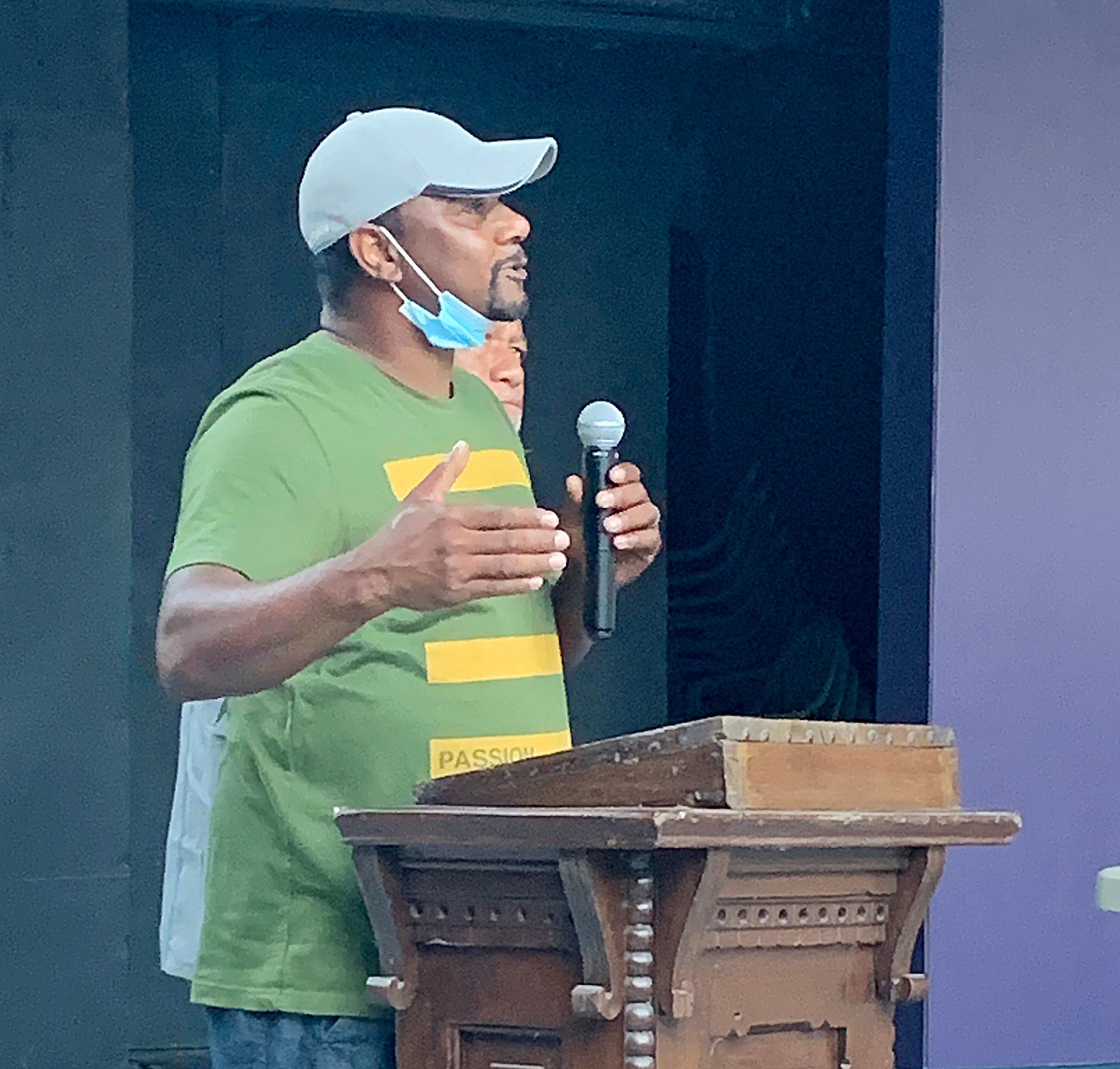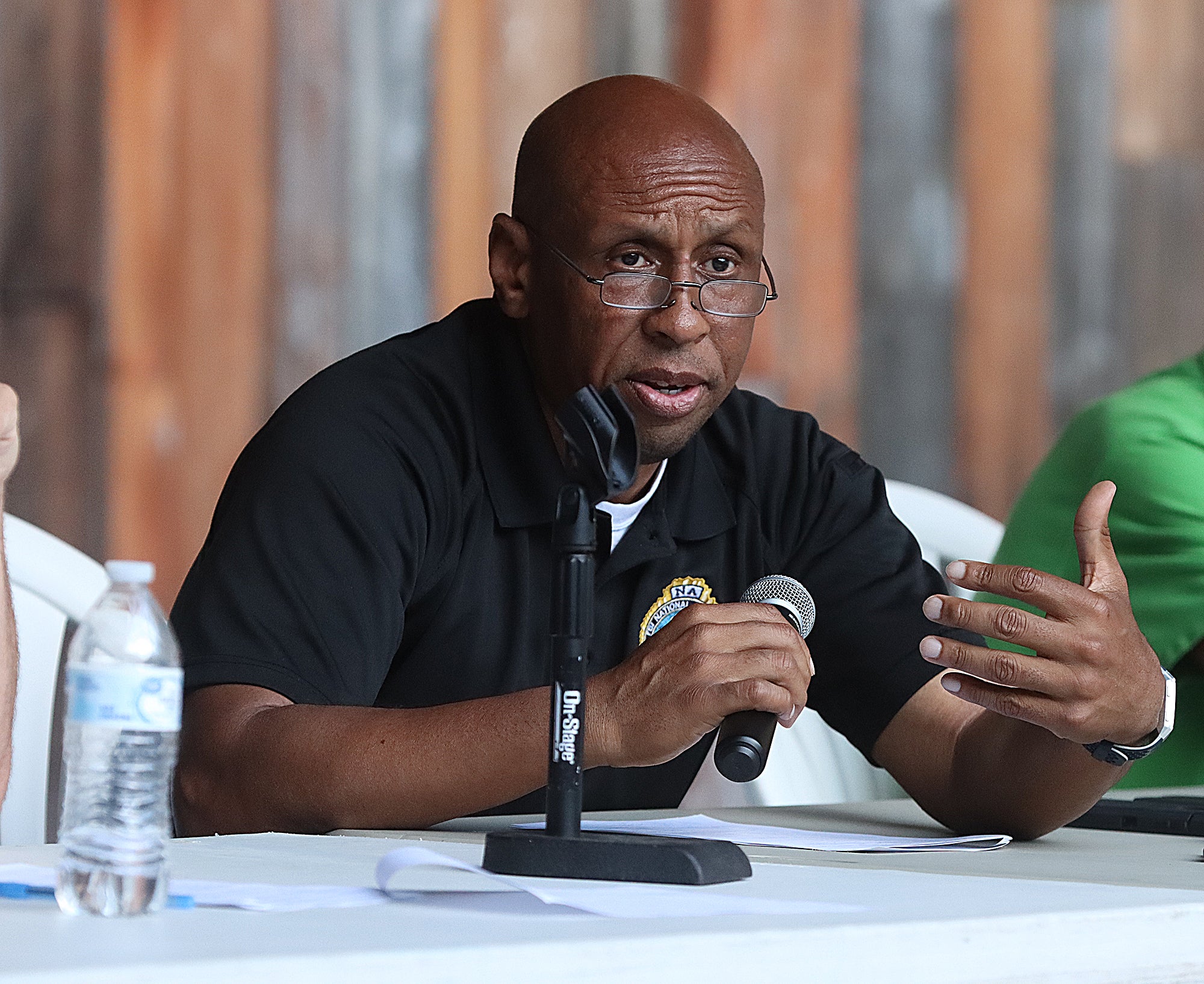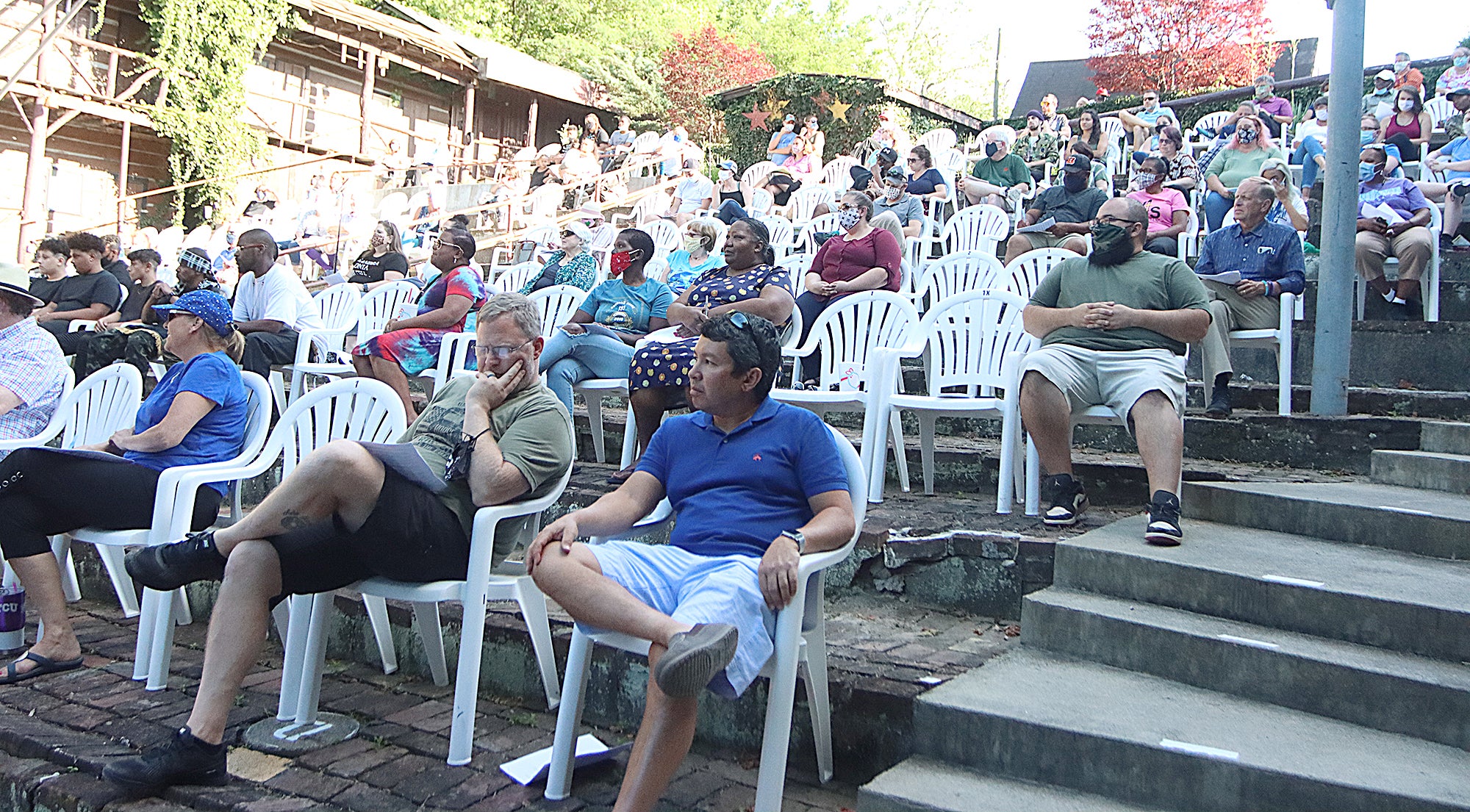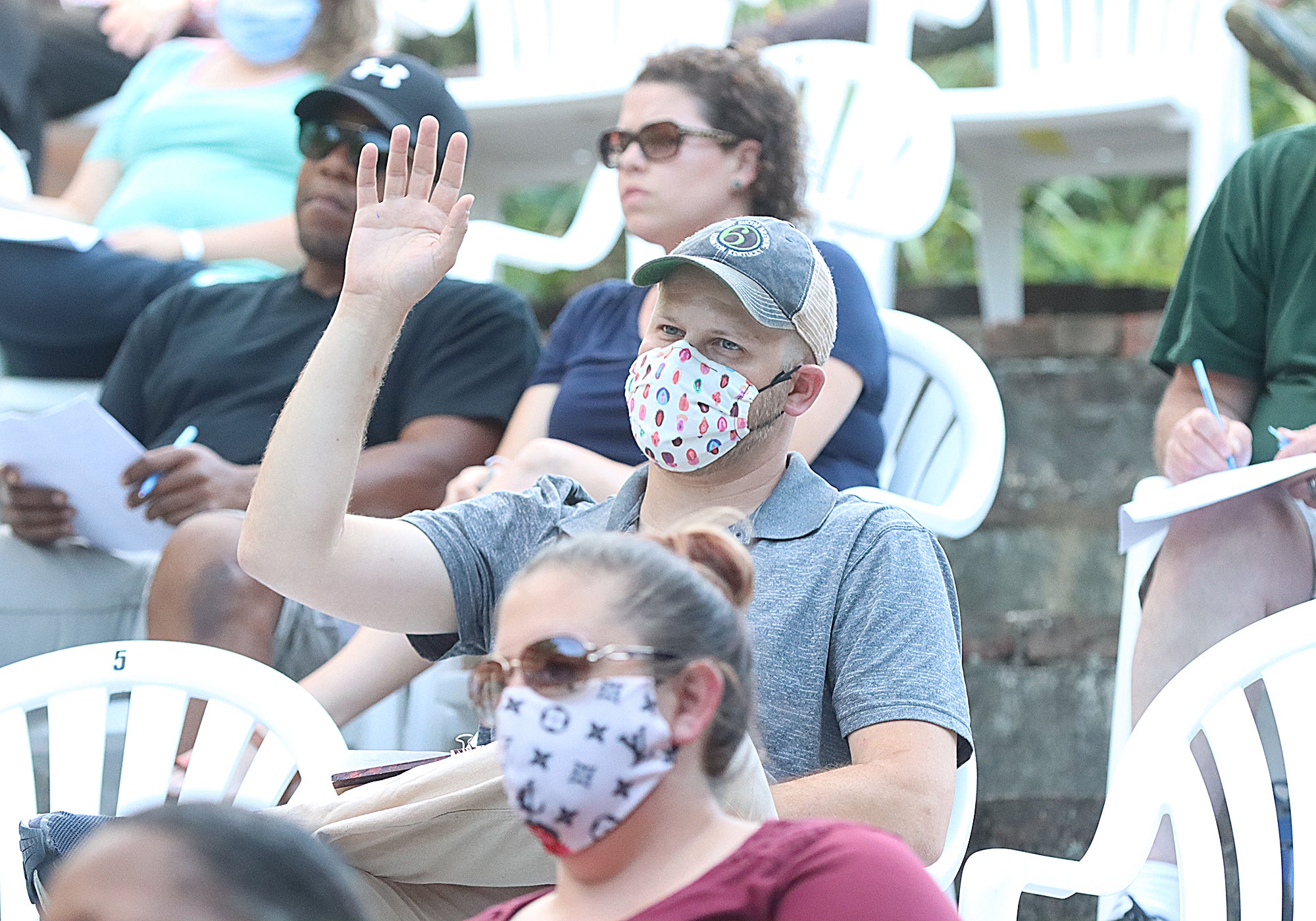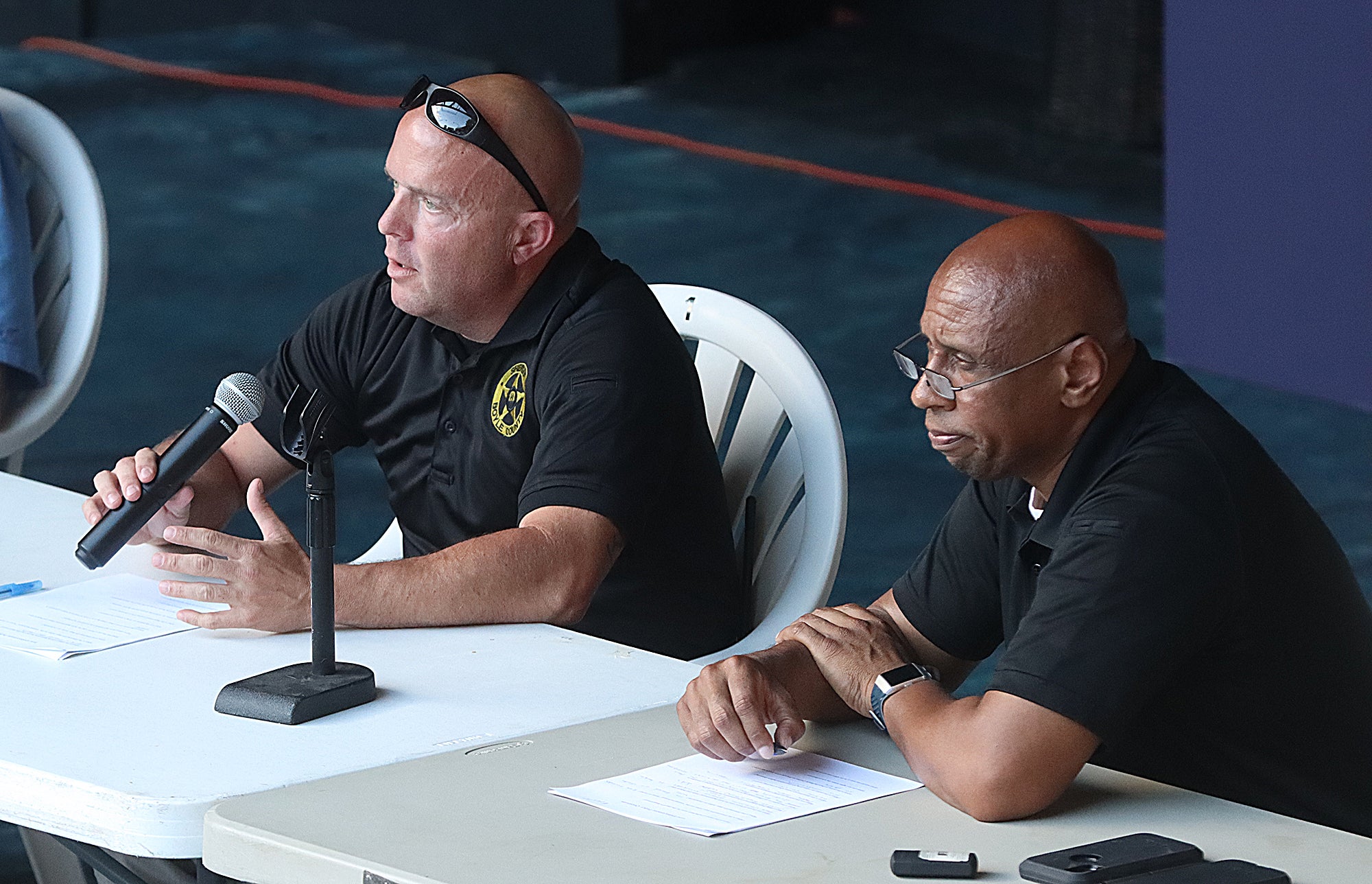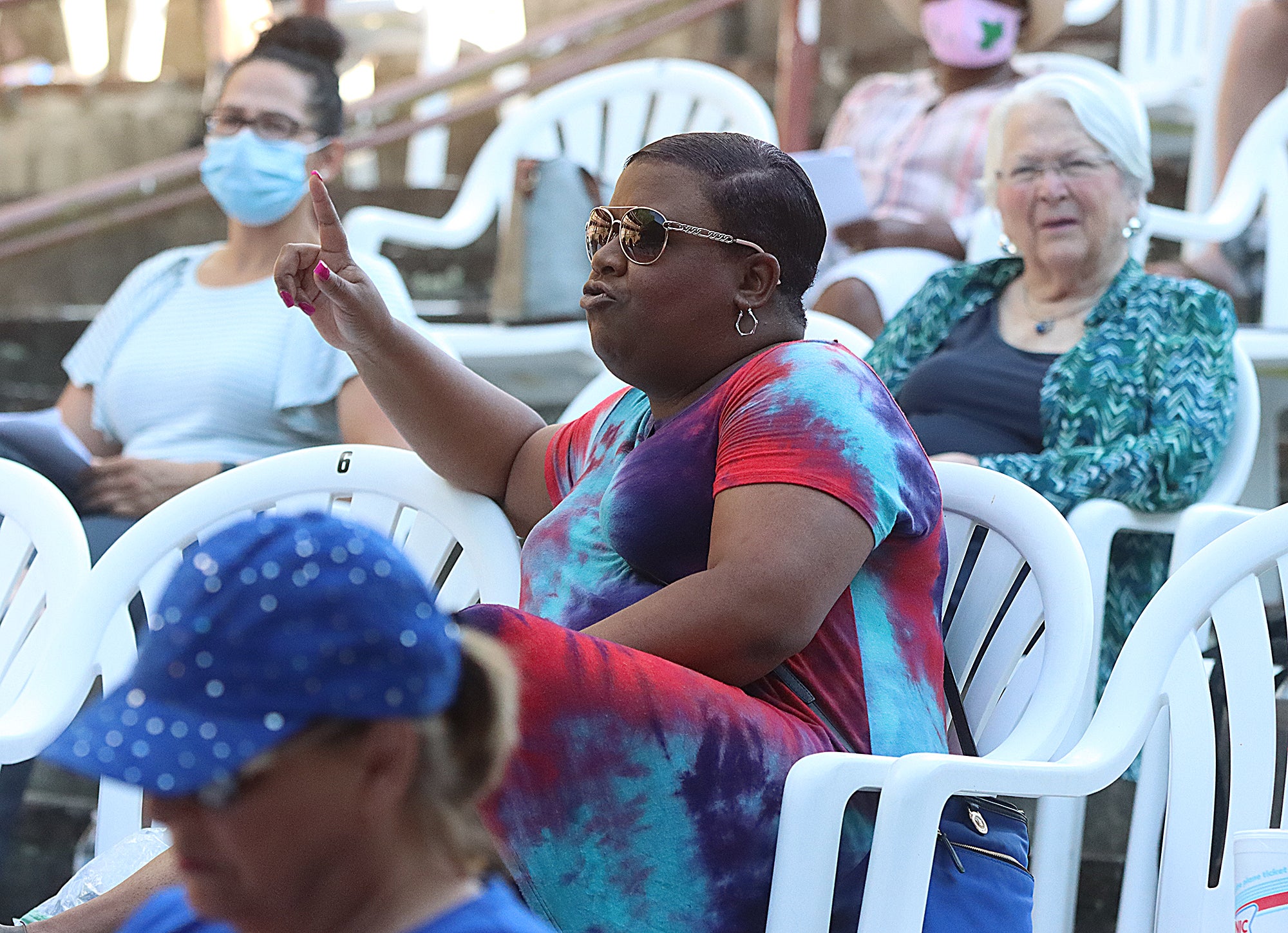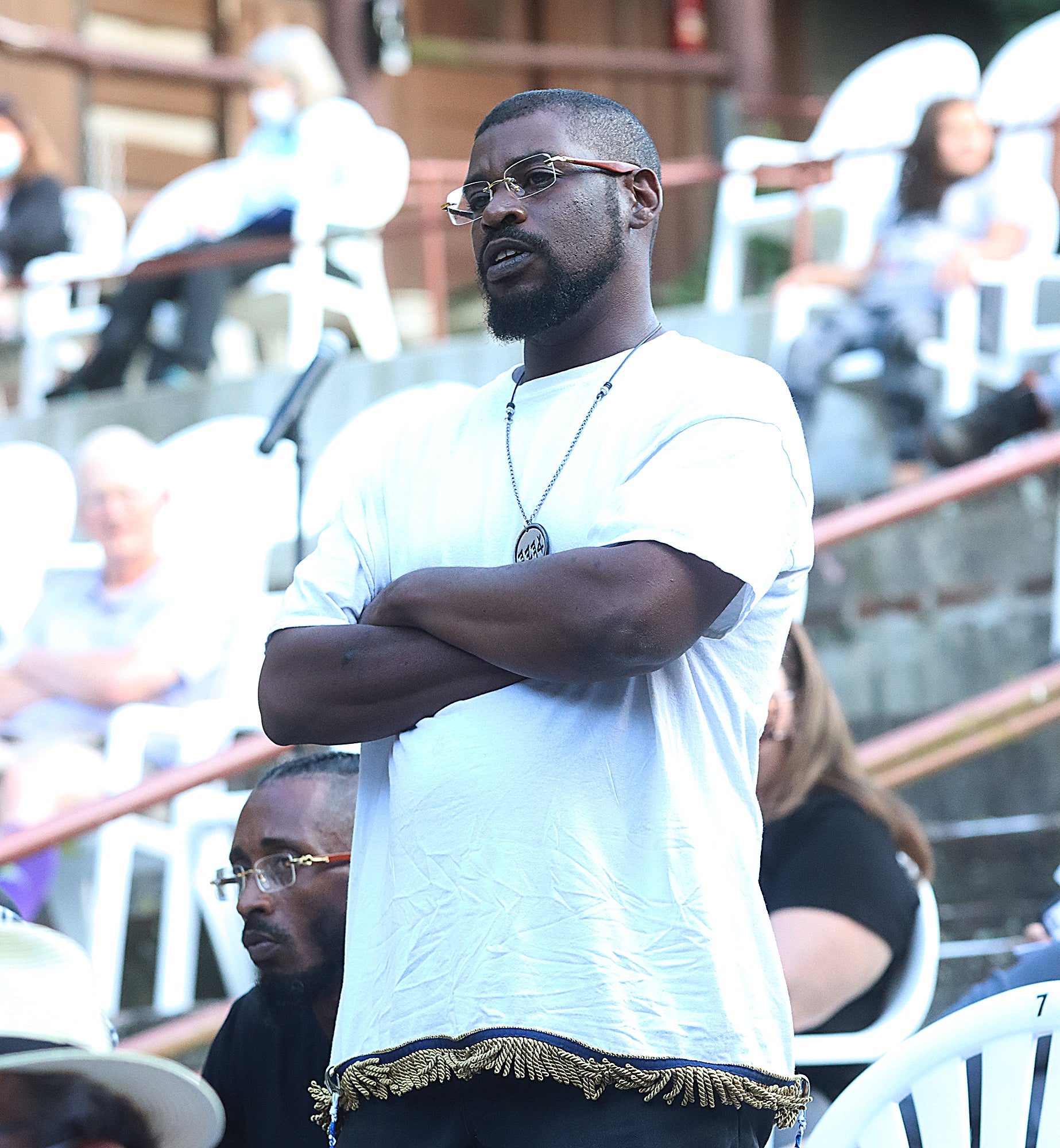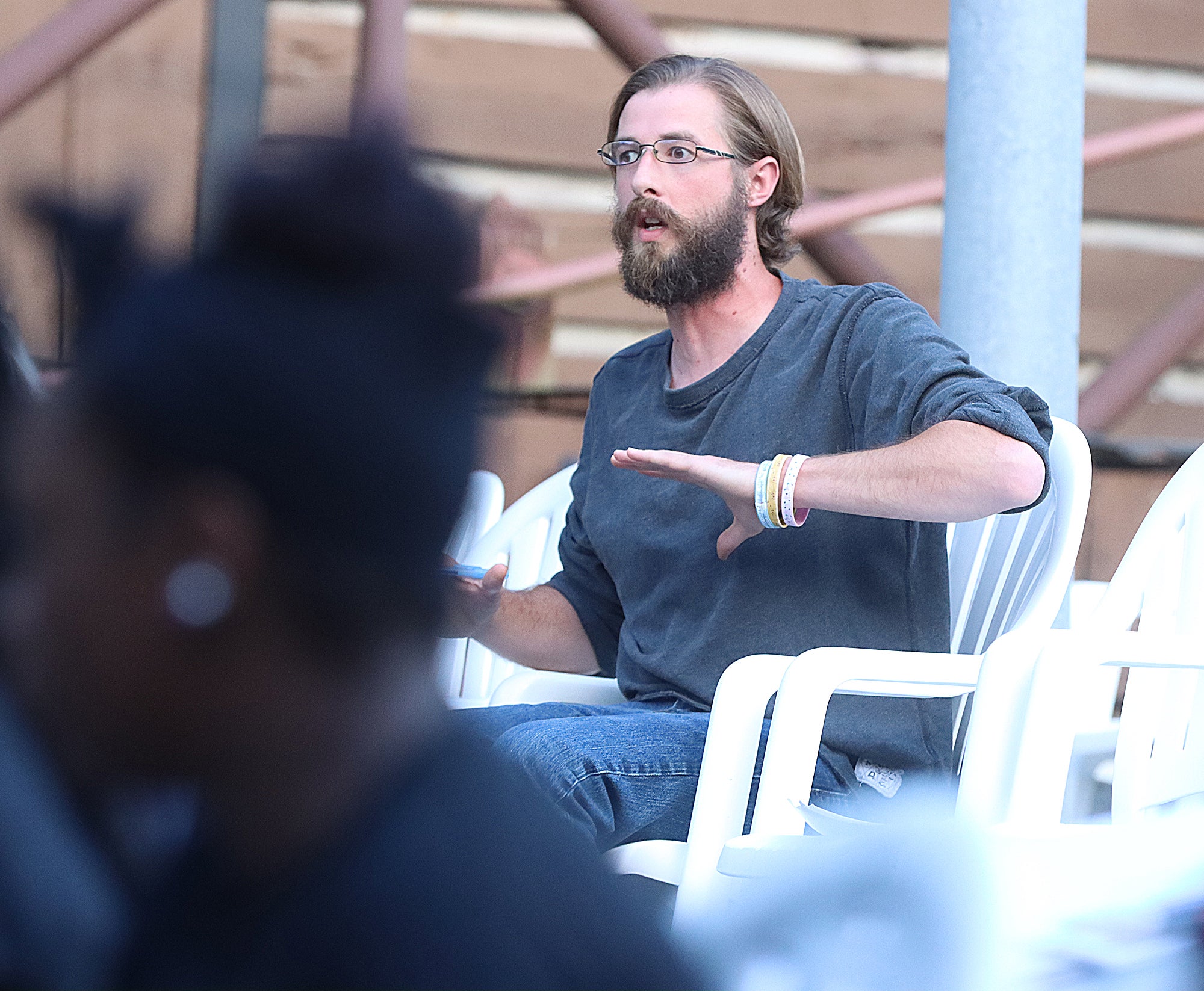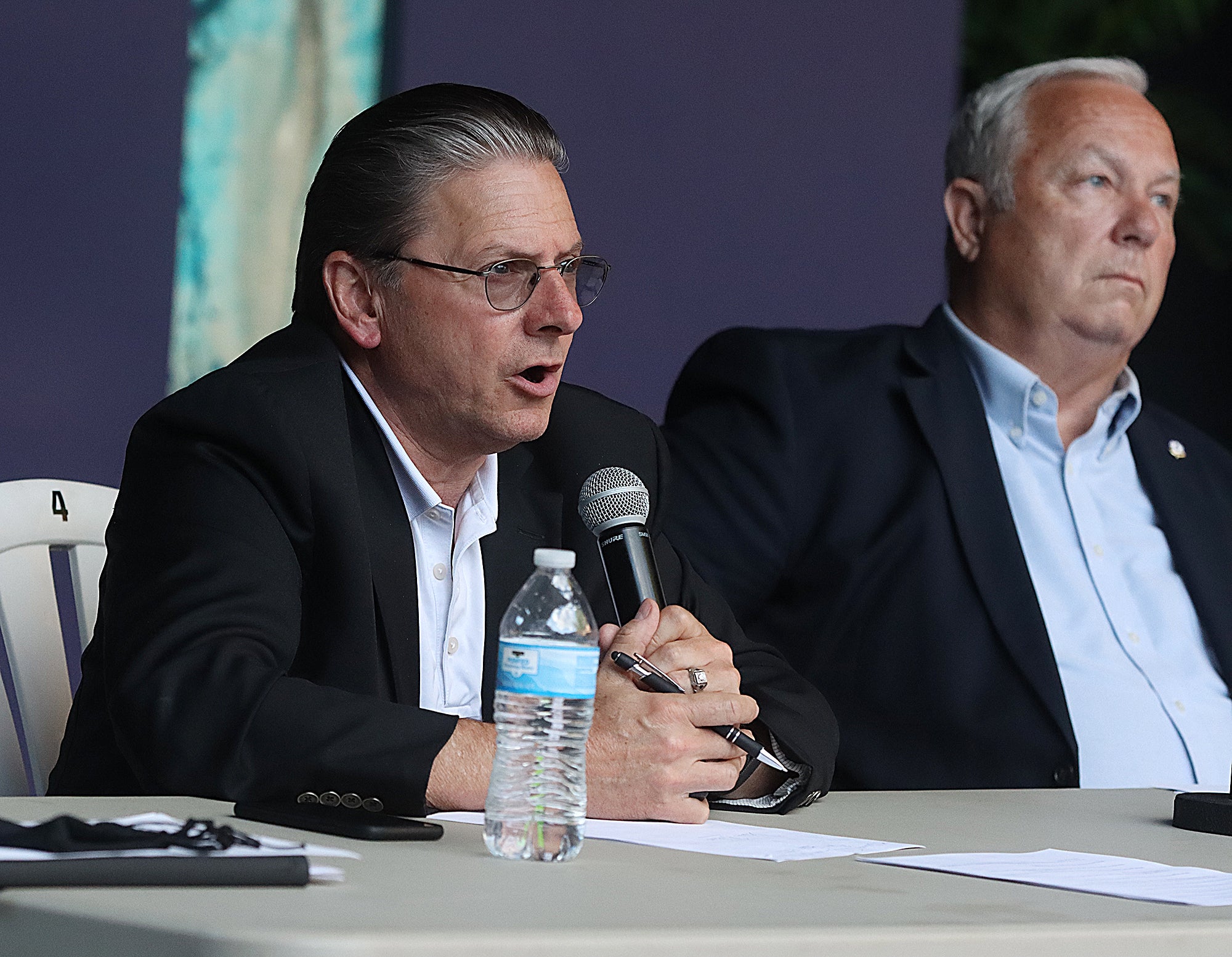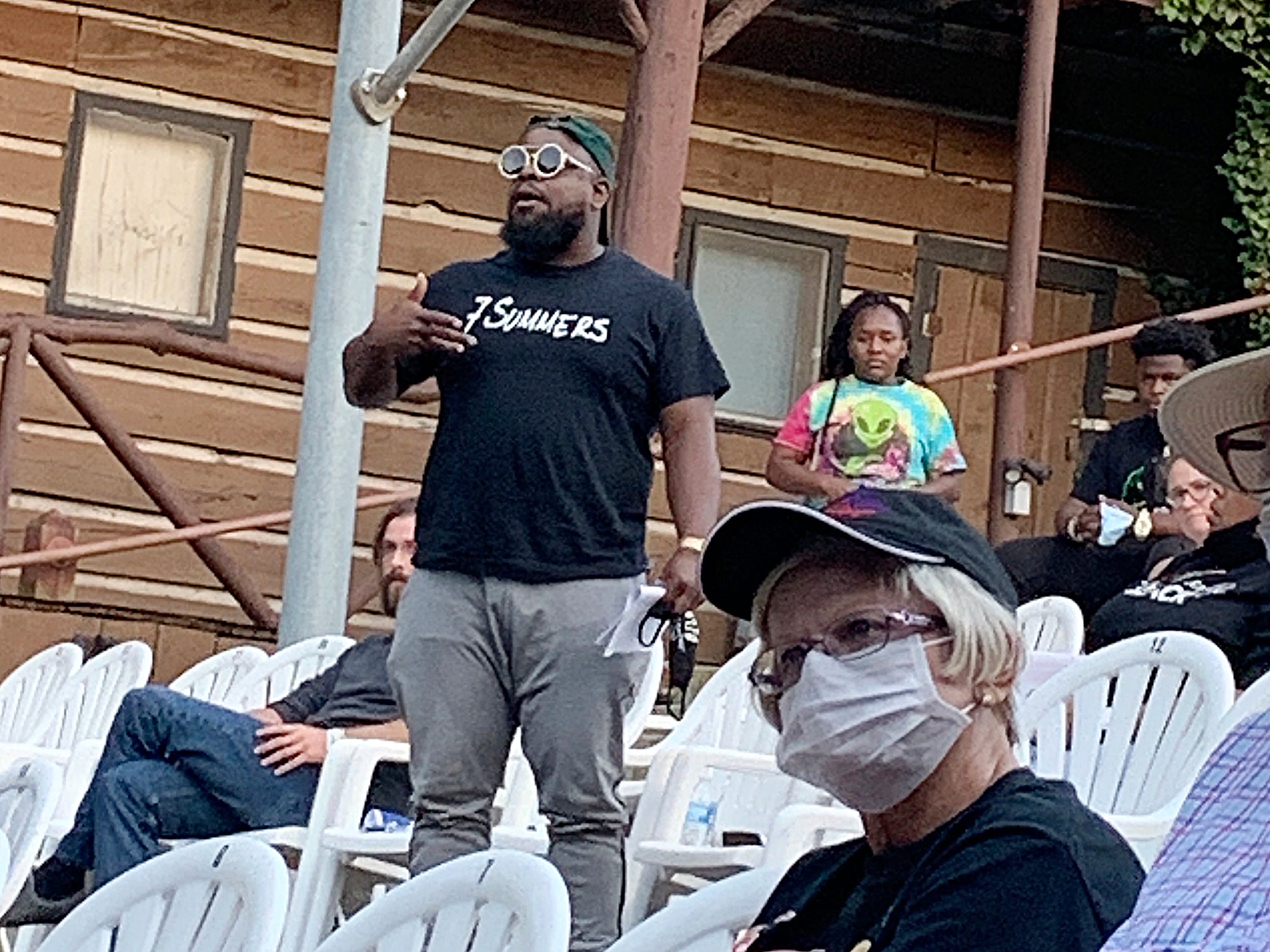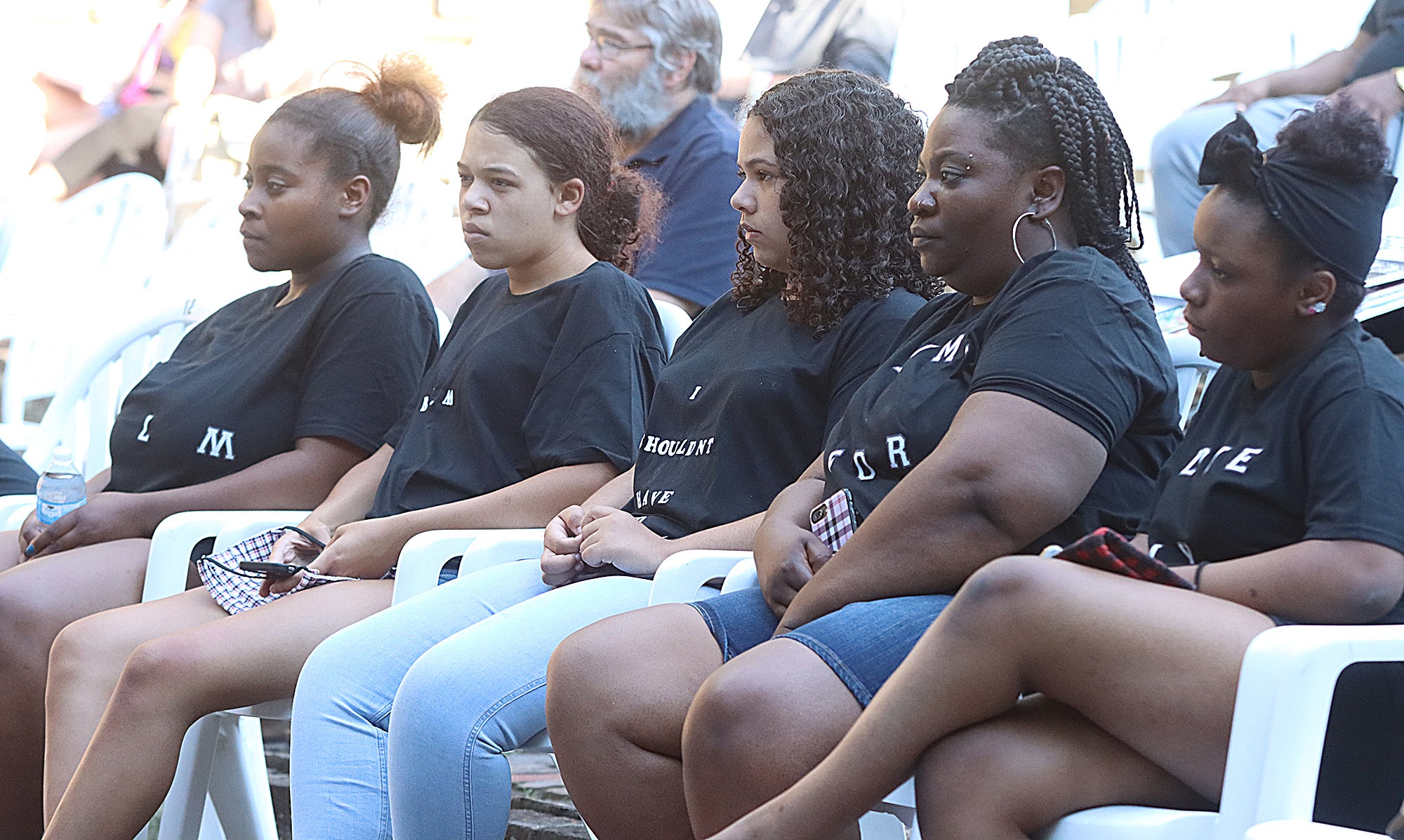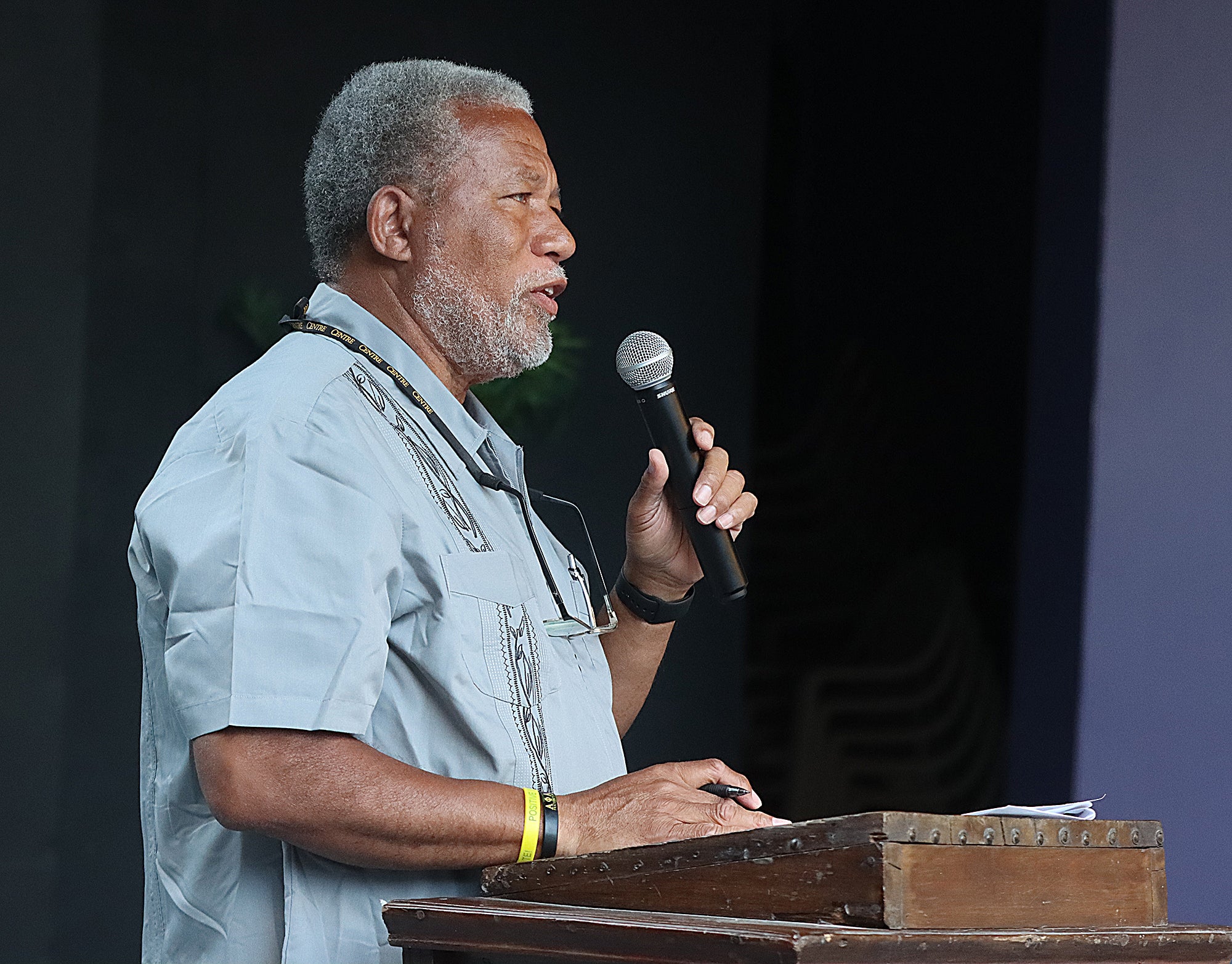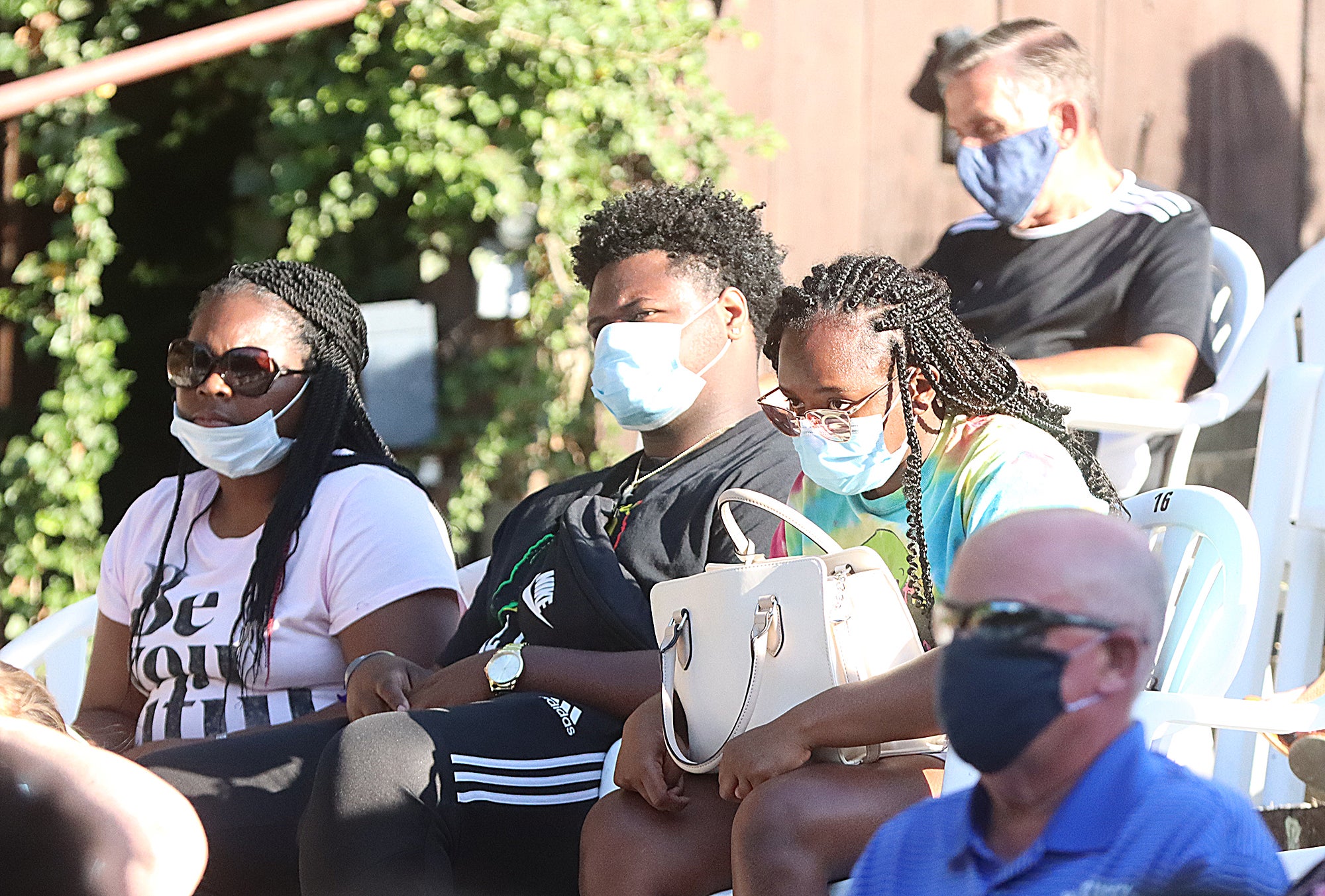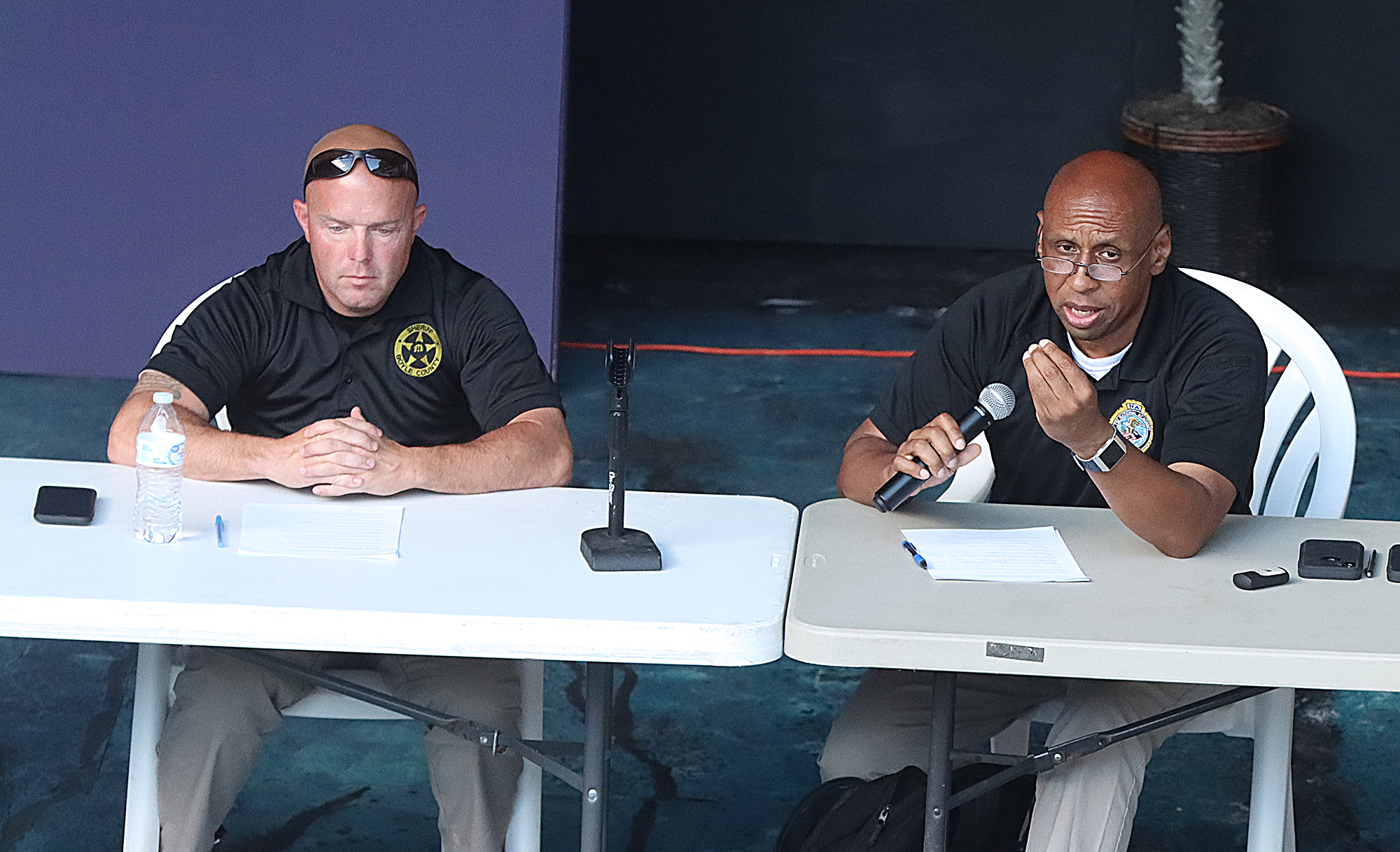“This is not a moment, it’s a movement.”
Published 1:04 am Friday, June 12, 2020
Following two peaceful protests in Danville last week, members of two local groups sponsored a community town hall Thursday evening to continue the dialogue about racial issues in the community.
The town hall, which focused on policing, was sponsored by GO (God Only) and presented in conjunction with United for Change Danville. Danville City Commissioner James Atkins moderated the event, which began with a list of 26 questions presented to the panel, made up of Danville Mayor Mike Perros, Boyle County Judge-Executive Howard Hunt, District 6 Magistrate John Caywood, Boyle County Sheriff Derek Robbins, Danville Chief of Police Tony Gray, and Danville City Commissioner Rick Serres.
“Our topic tonight, our only topic tonight, is policing, and I’d like to stress the word community policing, because that’s what it’s all about. It’s about how to police the community, and how the community polices itself,” Atkins said.
Atkins began asking the questions, with the first addressing the use of dash cameras and body cameras by Boyle County Sheriff’s Office deputies. Robbins addressed the question, saying the cost to outfit all deputies with the type of cameras needed would be approximately $261,000. He said that would put a camera in every vehicle and have a camera on the body of every deputy. That cost would provide cameras similar to the ones used by the Danville Police Department, according to Robbins.
“We made the mistake in the past of buying, for lack of a better term, cheap cameras, and we got what we paid for. The batteries would last about two hours, we would miss footage on certain calls, and it began to raise questions in court,” he said, adding that the cameras his office is needing would record at all times and “should catch everything.”
“What we’re wanting to do is implement a program that ensures everything is recorded all the time so there’s not any questions in what’s going on and in what we do when we get out here,” he said.
Robbins said he is looking at grants and other ways to fund the cameras, and an account has been set up locally in an attempt to raise money for the cameras.
Hunt said he has also reached out to U.S. Congressman Brett Guthrie’s office seeking grant money to help purchase cameras.
Following the death of George Floyd in Minneapolis last month, where an officer held his knee on the neck of Floyd leading to his death, a question on “the carotid technique” and chokeholds was asked, and Robbins and Gray each answered.
“The carotid technique, I’m not familiar with that terminology, but I can tell you that in the police academy, they teach us that when a suspect is on his stomach, once you get him secured you should have him sit up because it does restrict breathing,” Robbins said.
Gray said there is no chokehold training in the police academy.
“As far as a chokehold, I don’t think we’re trained in any chokeholds at all in the state of Kentucky. There’s a couple of striking techniques, but no such thing as chokeholds,” he said.
Other questions addressed when an officer can fire a weapon, what information a citizen has to give an officer during a traffic stop, no-knock warrants and more.
Citizens in attendance asked follow-up questions as Robbins and Gray answered the initial questions.
Another question focused on implicit bias and diversity training, and Gray said it is required every two years. A woman in the crowd asked about the extent of the training, and whether it could be done more frequently.
“Every two years, that’s just not enough,” she said, and Gray agreed.
“I agree with you. Implicit bias (training) needs to be everywhere, not just in law enforcement. There are other places that they don’t even do implicit bias training. The city of Danville is moving ahead because there are other places that don’t even do that,” Gray said. “Can it be more, yes. It is mandatory for us to do that training every two years, and mayor, I guess they want it done every year.”
As the event neared an end, Melinda Weathers, a volunteer with United for Change Danville asked a question of the panel. She said the audience had heard from Robbins and Gray all evening, but would like to hear more from the other members.
“I want to hear, just 30 seconds, what do some of the other panelists think about specifically ‘Black Lives Matter.’ I want to hear from other people, not just our police department,” Weathers said.
“Black lives matter. Period,” said Mayor Perros. “I can’t say it any plainer. Always should have. I think it is a movement. I’ve been through the instances where things get dusted up and nothing comes of it. I don’t think that’s going to happen this time. I hope not.”
Judge Hunt said he agreed with Perros.
“I agree with the mayor, Black lives do matter, and they matter, and yet he accentuated that with the punctuation “period,” and I agree with that 100%,” Hunt said. “Like Mr. Walker said, as a Christian, which I am, all lives matter. All lives are important. God created us all in his image, and that is important to me, that I don’t differentiate between any of God’s creatures as far as the importance, but I do agree, black lives matter, OK?”
Magistrate Caywood echoed a similar sentiment.
“Black lives very much matter. And having spent 15 months in combat 50 years ago, all lives matter, because we need each other,” he said. “God made us all. I’m a Christian just like the judge said. But when you depend on each other for your life, it doesn’t matter, it could be a Native American, it doesn’t matter. We all need each other in order for our society, our civilization to survive.”
The final panel member to answer Weathers’ question was Commissioner Serres.
“The answer, all lives matter, as was already stated down there. Sometimes we forget in times like this about those other people that have been scrutinized – gay, Asians, even women – every one of the people have been scrutinized, but I think if we reach out and shake each others hand and try to understand each other, life would be better.”
As the panelists gave their responses, a group of people left the event. A man in the crowd stood up and said those people left because of the way the question was answered, especially with the phrase “All Lives Matter.” As the man raised his voice to share his point, he was addressed by one of the event organizers, Marcus Walker.
“God sees no color. I have to be true to my father. All lives matter, yes, that’s fine, but not everybody’s house is burning down,” he said. “Nobody else’s house is on fire in this country, and it has been for the past 400 years. So the issue, the statement is, yes, black lives matter. Yes indeed. I’m not going to promote all lives matter because that’s like saying black lives don’t matter,” he said.
A member of the audience, Kenneth Payne, addressed the panel members.
“If I say black lives matter, that doesn’t mean other lives don’t matter,” Payne said. “We’re all here, adults, old enough to know and intelligent to know that. What we want to know and what we want to hear is, do you understand how we feel when we say that?”
Payne’s statement drew a large round of applause from the crowd.
In the closing moments of the event, Walker said another town hall discussion would be held in two weeks at the same location. He added that the topic has not yet been set.
“It went good,” Walker said of the event. “A lot of education was promoted, a lot of understanding. We’re trying to promote peace, love. Besides protesting we need to do stuff like this. This is a start, the voices opening up and giving a forum for dialogue. It was a good start, but we can’t do it alone. It takes everybody. We have to focus on the fact that this is not a moment, it’s a movement.”
Weathers said she thought the event went well, and looks forward to being involved in others as they take place.
“I was most impressed by the amount of people. When I pulled up right at 6:30, to see the amount of cars that were here, and the representation here, the diversity of people here tonight,” she said. “The levels of expertise and people willing to offer their services. I appreciated the chief and sheriff tackling those hard questions. They were respectful, even when things got a little tense, and tried to answer those questions. It’s a good start, and change doesn’t happen over night. I believe steady and small progress is what it’s going to take. I hope the commitment is there to see this thing through. That’s one of the reasons I asked the question, ‘What does Black Lives Matter mean to you?’ to see where peoples’ hearts are. We got some different responses, and I was wishing to hear something different from most. But it lets me know there’s opportunity for growth. There’s opportunity for us to be educated, and not just our panelists, myself as well, to be educated and make sure we explain ourselves, make sure we are sharing and having dialogue and conversation on a continuous basis, and not just this one time. I’m encouraged by what happened today, and I’ll be back for the next one.”


